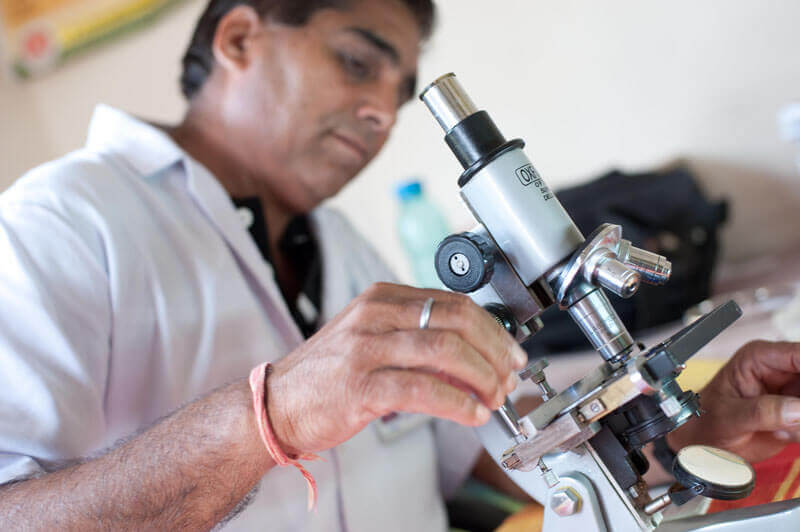
- Senate supports global health R&D in defense appropriations bill and report. Photo: Ken Kistler
Earlier this month, we reported that both the House and Senate
Appropriations Committees included language supporting global health research and development (R&D) in their reports concerning funding for the
Department of State, foreign operations and related programs.
Last week, we heard even more good news for global health R&D out of the Senate Appropriations Committee—this time related to the Department
of Defense (DoD). The fiscal year (FY) 2015 defense appropriations bill—which was approved by the Committee last Thursday—includes a $7
million increase for peer-reviewed medical research—from $200 million in FY 2014 to $207 million this year—despite reducing overall DoD
funding from FY 2014 levels. In addition, in the accompanying report,
the Appropriations Committee includes very strong language recognizing DoD’s substantial contributions to global health R&D and the need to support
sustained US investments in this area.
The committee report includes language submitted by GHTC recognizing “the critical contribution that the department’s [R&D] portfolio makes in protecting
our troops from infectious and neglected diseases they may encounter on missions around the world” and noting “the need to sustain and support US investment
in this area by fully funding those R&D programs that carry out this work.”
Committee recognizes role of infectious disease research in improving US security
The committee report also recognizes the threat that neglected infectious diseases—such as malaria, dengue fever, and Chikungunya—pose to the
effectiveness of US forces deployed overseas and expresses concern over reductions in research funding for these disease areas. In the report, the
committee notes that it is “concerned with the department’s decisions over recent years to precipitously decrease funding for malaria research” and
that it “encourages the department to address diseases of military importance and invest in research for chemoprophylaxis, surveillance, and other
countermeasures.”

- Photo: PATH/Gabe Bienczycki
Report calls for DoD to improve coordination across R&D programming
The committee report also includes language—submitted by GHTC—which directs each DoD program involved in infectious disease research to submit
a report of its R&D activities to the House and Senate Defense Committees outlining the program’s funding and accomplishments from FY 2011 through
2014. As well, the committee urges DoD to partner with other organizations involved in infectious diseases research—including other federal agencies—to
mitigate the duplication of research efforts and maximize the use of DoD resources. It is GHTC’s hope that these reports and activities will lead to
improved coordination across DoD global health R&D programs, as well as improved coordination across all US agencies involved in global health
R&D, which will in turn help fill current gaps in research programming and assure US investments are used most effectively.
GHTC is glad to see the Senate recognizing DoD’s critical role in global health R&D, as well as advocating for sustained funding and improved coordination
for global health R&D programming at DoD. We are hopeful that the language included in the Senate defense appropriations report will be included
in whatever final legislation is passed.


